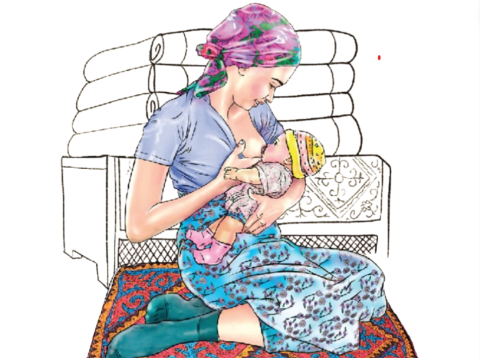Resources: Ages and Stages reference package
This is a summary of the following resource: Supporting integrated infant and young child nutrition and early childhood development programming: Ages and stages reference package and resource collection (2024) https://www.advancingnutrition.org/resources/ages-and-stages-collection
Increasingly, evidence shows that integrating nutrition and caregiving interventions improves childhood development outcomes more than standalone practices. To support programme managers to implement more holistic care, USAID Advancing Nutrition’s ‘Ages and Stages Reference Package’ was created to support the health of children aged 0–2 years.
There are four age-specific modules that users can explore, aligning to each age/stage group: ages 0-6 months, 6–9 months, 9–12 months, and 12–24 months. The modules provide information on how children grow and develop, their feeding and care needs at each stage, and challenges to optimal care. At the time of publication, there are 56 resources available within the 0–6 months age group, including technical reports, guidelines, and education materials. There are 54 resources available in each of the 6–9 months, 9–12 months, and 12–24 months groups.
Resources can also be searched through cross-cutting themes (breastfeeding, complementary feeding, monitoring and evaluation, nurturing care, social and behaviour change, and support to caregivers), improving accessibility. In addition to the online resources, the full package is available in a downloadable format to support users in areas of low connectivity. The package is also available in both English and French1
We know that children grow best in an environment with nurturing care, which includes safe and secure surroundings, responsive caregiving, adequate maternal and child health care and nutrition, and opportunities for stimulation and early learning.
Global research shows that integrated approaches that provide more holistic care, such as combining nutrition and responsive care and early learning interventions, result in better outcomes for children.


